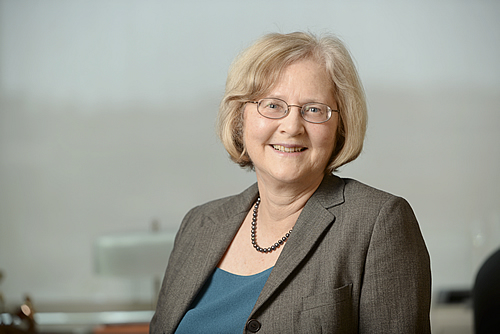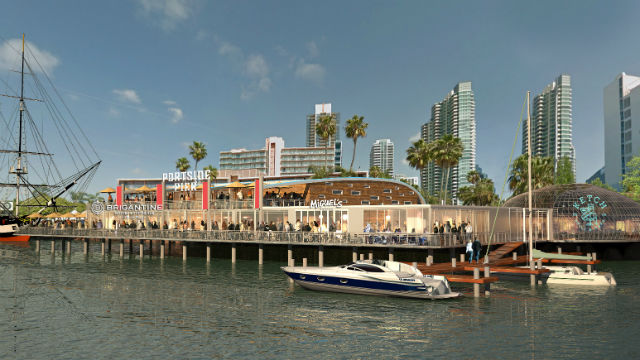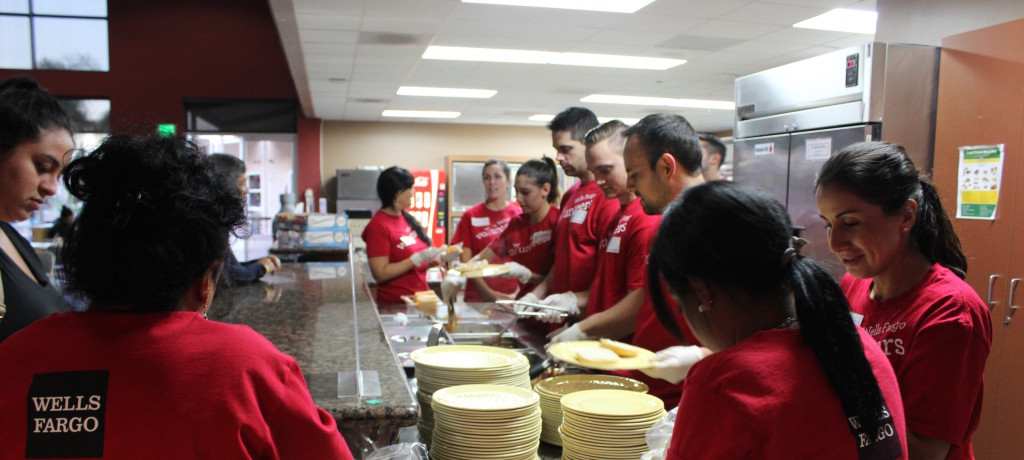Daily Business Report-Nov. 18, 2015
A residential customer whose monthly bill is now around $36 will see it rise to just over $39, according to a city report. Customers now paying $71 will see their bills go above $77.
Council Votes 16 Percent Raise
Increase Starts at 9.8 percent in January
City News Service
Water rates in San Diego will rise by around 16 percent next year under action taken Tuesday by the City Council.
The rate hike to customers starts at 9.8 percent beginning in January, with an additional 6.4 percent increase coming next July 1. The second increase is 0.5 percent less than originally proposed.
The hikes cover a combination of lower revenues as customers reduce consumption amid the drought, and higher expenses, according to city officials.
Halla Razak, the city’s Public Utilities director, said the cost of imported water from the San Diego County Water Authority and Metropolitan Water District has gone from around $500 per acre-foot to $1,200 per acre-foot over the past decade. The new rates — amounting to 1 cent per gallon — will still be lower than the average of other local water agencies, she said.
Mayor Kevin Faulconer said the new funds will keep water reliable and safe, pay for replacement of aging pipes and invest in a system to recycle waste water into drinking water.
“Today’s vote really is a critical vote for the future of our San Diego water supply,” Faulconer said. “Simply put, today’s vote is about infrastructure, and how we provide that infrastructure for our San Diego families and for our small businesses.”
Supporters of the increases said failing to approve them would delay the projects, force the city to spend $2 billion to upgrade the Point Loma Wastewater Treatment plant, and require Public Utilities to spend down its reserve accounts — which would catch the eyes of credit rating agencies, making capital projects costlier.
Councilman David Alvarez, one of two dissenters in a 7-2 vote, said he understood the need for some increases, but argued the rate structure doesn’t make sense because it doesn’t take into account reductions in water use by customers in the face of the drought.
“What are they getting in return — what is this message sent to them, that even though they’ve done the right thing they’re going to see an increase in their water rate?” Alvarez asked.
The other dissenter, Councilman Scott Sherman, said the handling of conservation puts the rate structure in “a terrible, terrible spiral.”
Razak said she’ll bring further increases to the City Council over the next five years. The motion by Councilman Chris Cate to shave a half-percent off next July’s increase would also reduce a planned July 2017 hike by 0.5 percent.
A residential customer whose monthly bill is now around $36 will see it rise to just over $39, according to a city report. Customers now paying $71 will see their bills go above $77.
____________________________________________

Governor Appoints 2 Attorneys
To San Diego Superior Court Bench
Gov. Jerry Brown has appointed two Democrats to the San Diego Superior Court bench.
The new judges are James A. Mangione, 61, of San Diego, a partner at Wingert, Grebing, Brubaker and Juskie LLP since 2002, and Tilisha T. Martin, 45, of La Mesa, the supervising attorney at the Dependency Legal Group of San Diego, Minor’s Council Office since 2010.
Their annual salary will be $189,041.
Mangione was an attorney in private practice from 1999 to 2002 and in-house counsel at Luna, Brownwood and Rice from 1994 to 1999. He
was a partner at Mitchell and Mangione from 1988 to 1994 and an attorney in private practice from 1981 to 1988.
Mangione earned a Juris Doctor degree from the University of San Diego School of Law and a Bachelor of Arts Degree from the University of California, San Diego. He fills the vacancy created by the retirement of Judge Christine Koch Goldsmith.
Martin has been adjunct faculty at the California Western School of Law since 2002 and was a faculty field liaison and lecturer at San Diego State University from 2001 to 2010. Martin served as a deputy public defender at the San Diego County Public Defender’s Office from 2005 to 2010 and was the community court coordinator for the Downtown San Diego Partnership’s Clean and Safe program from 2002 to 2005.
She earned a Master of Justice Management degree from the University of Nevada, Reno, a Master of Social Work degree from San Diego State University, a Juris Doctor degree from the California Western School of Law and a Bachelor of Arts degree from the University of California, Berkeley. Martin fills the vacancy created by the retirement of Judge William J. McGrath Jr.

Nobel Laureate Elizabeth Blackburn
Named Salk Institute President
Nobel Prize-winning scientist Elizabeth Blackburn, a pioneering molecular biologist and highly respected leader in the scientific community, has been named president of the Salk Institute for Biological Studies.
Blackburn will join the Salk Institute from the University of California, San Francisco, where she is a professor in the Department of Biochemistry and Biophysics. She will assume her new role effective Jan. 1, 2016.
As Salk’s president, Blackburn will take the helm of the Institute’s world-renowned scientific enterprise, leading a cadre of scientists as they push the frontiers of discovery in fields such as cancer, neuroscience, aging and plant biology.
“Few scientists garner the kind of admiration and respect that Dr. Blackburn receives from her peers for her scientific accomplishments and her leadership, service and integrity,” said Irwin M. Jacobs, chairman of Salk’s Board of Trustees. “Her deep insight as a scientist, her vision as a leader, and her warm personality will prove invaluable as she guides the Salk Institute on its continuing journey of discovery.”
Blackburn won the Nobel Prize in Physiology or Medicine in 2009 for discovering the molecular nature of telomeres, the ends of chromosomes that serve as protective caps essential for preserving genetic information, and for co-discovering telomerase, an enzyme that maintains telomere ends. Both telomeres and telomerase are thought to play central roles in aging and diseases such as cancer, and her work helped launch entire new fields of research in these areas.
In addition to the Nobel Prize, Blackburn has received nearly every major award in science, including the Lasker, Gruber and Gairdner prizes. She was named to the TIME 100 in 2007, the magazine’s yearly list of the most influential people in the world. She is a member of numerous prestigious scientific societies, including the National Academy of Sciences, the National Academy of Medicine and the Royal Society of London.
Blackburn has shown an abiding commitment to public service in the scientific, academic and public policy arenas. She has served as president of both the American Association of Cancer Research and the American Society for Cell Biology, and has served on the editorial boards of several scientific journals, including the influential journals Cell and Science.
Helping to guide public science policy, she was a member of the Stem Cell Research Advisory Panel for the California State Legislature and a member of the President’s Council of Bioethics, an advisory committee to the President of the United States.
Blackburn’s tenure as Salk’s president will begin on January 1, 2016. However, she is no stranger to the Institute. Since 2001, she has served as a Salk non-resident fellow, one of a group of leading scientists that advise the Institute’s leadership and play key decision-making roles in the appointment and promotion of Salk professors.
“I am truly honored to be asked to be the next president of the Salk Institute. The Salk is full of absolutely terrific people and brimming with great science. Building on its distinguished history and current success, I am delighted to be playing a role in continuing and growing its major contributions to science and health research,” said Blackburn.
National Funding Inc. Doubles
Size of its Corporate Headquarters

National Funding Inc., a small business lender, announced a multi-million dollar expansion to its center of operations in the Eastgate Technology Park in the University Towne Centre area of San Diego.
The company increased its current physical headquarters from 22,097 to 44,194 square feet — encompassing the entire two-story building. With the expansion, management projects employment levels to increase from its current 167 employees to 273 employees.
Initially leased in 2013, the National Funding facility is located at 9820 Towne Centre Drive. The expansion adds an entire floor to the current space, doubling the financial technology firm’s footprint. Administrative and operations offices will occupy the first floor while account managers will be located on the second floor. Team members gain a new game room and additional kitchen area.
Company officers said the investment reflects the 172 percent growth National Funding has seen over the last three years. With the employee occupancy maximum up to 273, the goal is to expand its ability to provide working capital, merchant cash advances, and equipment financing to small businesses nationally.
“Planning the new facility is a reflection of our continued belief in small business, and our preparation to handle the growth that the company is experiencing,” said Chief Executive Officer David Gilbertn. “We’re located in a prime business destination near local universities and urban amenities. It’s an ideal environment to fuel our growth in people and innovative financial products.”

Port Approves Brigantine’s Bid
To Take Over Anthony’s Site
City News Service
The Port of San Diego Board of Commissioners voted Tuesday to open negotiations with The Brigantine Inc. to lease and renovate the iconic Anthony’s Fish Grotto site on the Downtown waterfront.
Port staffers recommended The Brigantine Inc., which operates six seafood restaurants in San Diego County, to take over the 16,600-square-foot space at 1360 N. Harbor Drive. They said an initial proposal submitted by the Brigantine scored the highest of six respondents, which included those from Anthony’s seafood restaurant and Sunroad Enterprises.
Anthony’s has leased the space since 1965, but the deal is set to expire Jan. 31, 2017, according to a staff report.
“The San Diego destination deserves a world-class restaurant anchor at this prominent site — one that showcases the unique location, attracts people to the waterfront and promotes the culture and beauty of our region,” said Port CEO Randa Coniglio. “The port team used a rigorous procurement process to compare the advantages of several excellent redevelopment proposals for this restaurant site.”
Brigantine has proposed operating four eateries on the site: Brigantine seafood restaurant; Miguel’s Cocina, a Mexican food chain also owned by Brigantine; Ketch Grill & Taps, a casual walk-up, dine-in and take-out grill that offers local craft beers and spirits; and Portside Gelato & Coffee, which would include coffee and espresso from San Diego roaster Cafe Moto.
The proposal also included a public viewing deck and an expanded dock- and-dine facility.
A staff report said a supplemental proposal and financial terms offered by the Brigantine make it the best option. The commissioners voted 4-2 to accept the recommendation, with Commissioners Robert Valderrama and Marshall Merrifield dissenting and Rafael Castellanos recusing himself.
Brigantine plans to invest at least $13 million into the project and pay a minimum annual rent of $1.1 million, which staff rated the best financial deal of the three finalists, or $1.6 million higher than the others over a 10- year period.
Staff will now open negotiations and begin the environmental review process. An eventual lease contract and EIR would require final board approval.
NeuroGenetic Pharmaceuticals
Awarded $2.5 Million Grant
NeuroGenetic Pharmaceuticals Inc., a San Diego privately held biopharmaceutical company, has been awarded a $2.5 million grant from the National Institute of Aging for the first in human clinical trials with NGP 555, a proprietary “first in class” small molecule for the treatment and prevention of Alzheimer’s disease.
NGP 555 is an amyloid modulator showing good brain penetration in pre-clinical models and is available in capsules for once daily dosing.
The grant funds pilot clinical trials for Alzheimer’s disease. NGP has completed the Phase 1a double blind, placebo controlled, single ascending dose clinical trial with NGP 555. The 14-day Phase 1b multiple ascending dose clinical trial is expected to begin next month.
City Settles Long-Running
de la Fuente Legal Dispute
City News Service
A 20-year legal dispute between businessman and presidential candidate Roque de la Fuente II and the city of San Diego over land-use issues in Otay Mesa has been settled, representatives of both sides announced Tuesday.
Under terms of the agreement, de la Fuente’s Border Business Park will receive $25 million, of which $18.75 million will be placed in a court-supervised escrow account. The city will receive $8.2 million — $3 million of which will cover legal fees.
City Attorney Jan Goldsmith said the money will come from insurance carriers.
The dispute erupted in 1995, when de la Fuente claimed the city failed to adhere to provisions of an agreement to develop more than 300 acres near the U.S.-Mexico border. Five lawsuits were filed over the course of the dispute, all of which will be dismissed, Goldsmith said.
The deal also included what he called “a safety valve,” in which Superior Court Judge Jeffrey Barton will resolve any further disagreements that arise over the next five years, without need to file a lawsuit.
“We’ve pivoted from the specter of costly litigation and a trial that would cost millions of dollars, to the potential for economic growth in the border region,” Goldsmith said at a news conference.

Ronald McDonald House Charities
Gets $56,500 from 3 Foundations
The Ellen Browning Scripps Foundation, the Farrell Family Foundation and the Parker Foundation are granting a total of $56,500 to Ronald McDonald House Charities of San Diego to help provide 150,000 free meals for families caring for critically ill or injured children at local hospitals.
Meals at San Diego’s Ronald McDonald House give weary families a convenient way to get the nourishment they need while remaining close to the hospital. Meals are free to families, thanks to generous donations of food from local retailers, as well as more than 300 volunteer groups who provide meals each year.
Grants from The Ellen Browning Scripps Foundation and Farrell Family Foundation are providing core support to fund what is not donated — extra food, equipment and staff oversight needed to serve 450 meals daily.
“Meals are a fundamental need for us all, but it’s something that parents forget about when they are focused on a critically ill or injured child. Having free, hot meals in a caring environment makes it easier for families to take care of themselves,” said Mick Farrell, ResMed CEO and board member of the Farrell Family Foundation. “They can go back to the hospital with renewed spirits and strength for their child.”
The Parker Foundation has joined in support of the meals program this year, with a $24,000 grant to streamline and “green” its operations. This includes new dishwashers and recycling efforts, including food waste recycling. By eliminating paper plates and diverting recyclable items, the Ronald McDonald House has reduced its trash output from 38 bags to just three bags a day.
Jack in the Box Plans 70 More
Restaurants as Earnings Rise
Times of San Diego

San Diego-based Jack in the Box Inc. Tuesday reported a 22 percent increase in profit on 4 percent growth in revenue for its 2015 fiscal year and announced plans to open more than 70 restaurants next year.
The national restaurant chain earned $108.8 million, or $2.85 per share in the fiscal year ended Sept. 27, compared to $89.0 million, or $2.12 per share, in the previous fiscal year. Revenue rose to $1.54 billion from 1.48 billion a year ago.
Fourth fiscal quarter earnings were $23.1 million, or 63 cents per share, up from $16.2 million, or 40 cents per share, in the same quarter a year ago. Revenue rose to $354.1 million from $344.7 a year ago.
“We’re pleased with our fourth quarter performance, which culminated in a 15 percent increase in operating earnings per share resulting from solid same-store sales growth and margin expansion at both Jack in the Box and Qdoba,” said Lenny Comma, chairman and CEO.
“This performance capped another terrific year, with operating earnings per share up approximately 22 percent, the fourth consecutive year of growth in excess of 20 percent,” Comma said.
The earnings were reported after the close of financial markets in New York, but Jack in the Box shares rose more than 4 percent to $72.95 in after-hours trading.
The company said Jack in the Box same-store sales increased 6.2 percent in the final quarter, while same-store sales at the Qdoba Mexican food chain went up 6.6 percent.
In its guidance for the new fiscal year, the company said it planned to open 20 new franchised Jack in the Box outlets and 50-60 new Qdoba eateries, about half of them company owned.
Jack in the Box is one of the nation’s largest hamburger chains, with more than 2,200 restaurants in 21 states and Guam. Additionally, the company has more than 600 Qdoba Mexican Eats restaurants in 47 states, the District of Columbia and Canada.
Personnel Announcements
Manchester Grand Hyatt Appoints
Area VP and General Manager
Manchester Grand Hyatt San Diego announced the appointment of Matt Adams as area vice president and general manager. In his new role, Adams will oversee Grand Hyatt San Diego’s entire operation.
Adams has fulfilled a variety of roles including general manager of Hyatt Regency Chicago, area vice president and general manager of Hyatt Regency San Francisco and Grand Hyatt New York, and vice president of operations for Hyatt, North America. Most recently he held the title of vice president, France for seven Hyatt properties.
Adams oversaw the $120 million renovation and re-invention of the Grand Hyatt New York. He started his career in 1983 at Hyatt Regency Long Beach.



